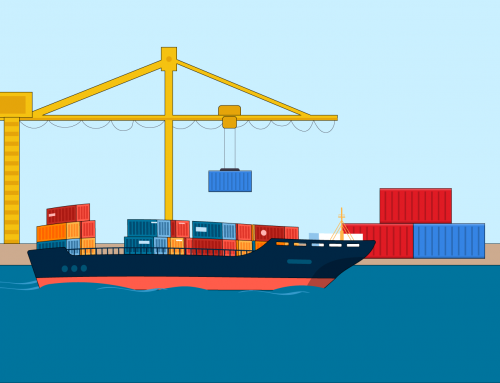Overview: Best Incoterms to Use
Hi, I’m Geoff Runcie and I’m back with another episode of the International Trade Series. This session will focus on an “Introduction to best Incoterms to use”. What they are, how to interpret them correctly, and how to apply them. I’m joined once again by renowned global trade expert Murdo Beaton and Abdul Mann, creator of the cloud-based export solution EdgeCTP Blog.
Today you’ll hear just one in a series of questions presented to Murdo, but if you’d like access to the entire session or future sessions there is a link here. Alternatively, feel free to drop me an email on Support or visit www.edgectp.com.
I hope you find this useful and more importantly it gives you the insight to go global.
Geoff:
OK, some people like me might need help selecting the best Incoterms to use so can Logistics Carriers or Export Agents help to select the best Incoterms to use?
Murdo:
OK well, the response to this question would be how well does the Logistics Carrier or Export Agent know you? Are they familiar with your business ambitions or are they totally unaware of what these ambitions might be? Or indeed are they aware of your financial position, how much exposure could be dangerous for you? Are they aware of this? If not the answer is, yes they might attempt to help you but the value of that help may be questionable as far as your own management decision-making process is concerned. Logistic Companies and Freight Agents will certainly tell you what each Incoterm means and the level of risk exposure and benefit that it may carry but whether that is going to apply directly to you is not their decision. It is yours.
Abdul:
And they don’t actually intercede in the interaction between you and the buyer in terms of the contractual liabilities.
Murdo:
They have no liability in the transaction at all.
(Scroll down to continue…..)
Abdul:
So if a Logistics Company or Export Agent or Chamber of Commerce turned around and said “You should use these particular best Incoterms to use.” would you as an exporter then go back to the buyer and say “I’m going to use this Incoterm because I’ve been advised to use it.”
Murdo:
OK, probably rather an amateurish way of responding to the issue because again you are presenting yourself to the buyer as a professional entity. You are presenting yourself to the buyer as an entity that is well managed and is capable of arriving at decisions to the benefit of the entity. If you are suggesting to your buyer that you are proposing something in your contract with him that has been advised to you by a third party that has nothing to do with your contract then that might not go down too well. So if you have been advised by the Chamber of Commerce or some other organization to use a particular term and if you as manager of your business decide that advice was well founded then make that advice your decision and not theirs.
Abdul:
So take ownership.
Murdo:
Yes, take ownership of that advice if you want to embrace it and don’t communicate to your buyer that you’re doing this on the advice of somebody else. That would probably not inspire me as the buyer with too much confidence in your management skills.
Abdul:
At the end of the day Murdo it’s got to be that both buyer and seller agree on a common best Incoterm to use.
Murdo:
Yes, it’s like everything else, if you receive advice from anyone, that advice is given to you for consideration. It is information. It is information that you must now analyze yourself as manager of your business and determine whether that information as given is likely to be of benefit to your business. If you think it is then you will adopt it as one of your management principles.
Abdul:
So you take the responsibility?
Murdo:
You take the responsibility of that information when you incorporate it into a relationship you have with somebody else.
Abdul:
Right, and then when you’re discussing the contract you say “My standard terms of delivery would be this particular Incoterm.” then the buyer can respond appropriately. So it’s a learning process.
Murdo:
You can then negotiate with each other as to whether or not the full profile of the clauses of the best Incoterm to use you have selected is to be used or whether some minor clauses in the Incoterm are not really necessary and thereby we will exclude them. But we have to be careful that we do not consider removing clauses that are absolutely essential for the proper discharge of the duties concerned.
Abdul:
So avoid customizing the Incoterms too much as we discussed earlier.
Geoff:
I hope you enjoyed this audio. If you’d like more information on international trade, go to www.edgectp.com





